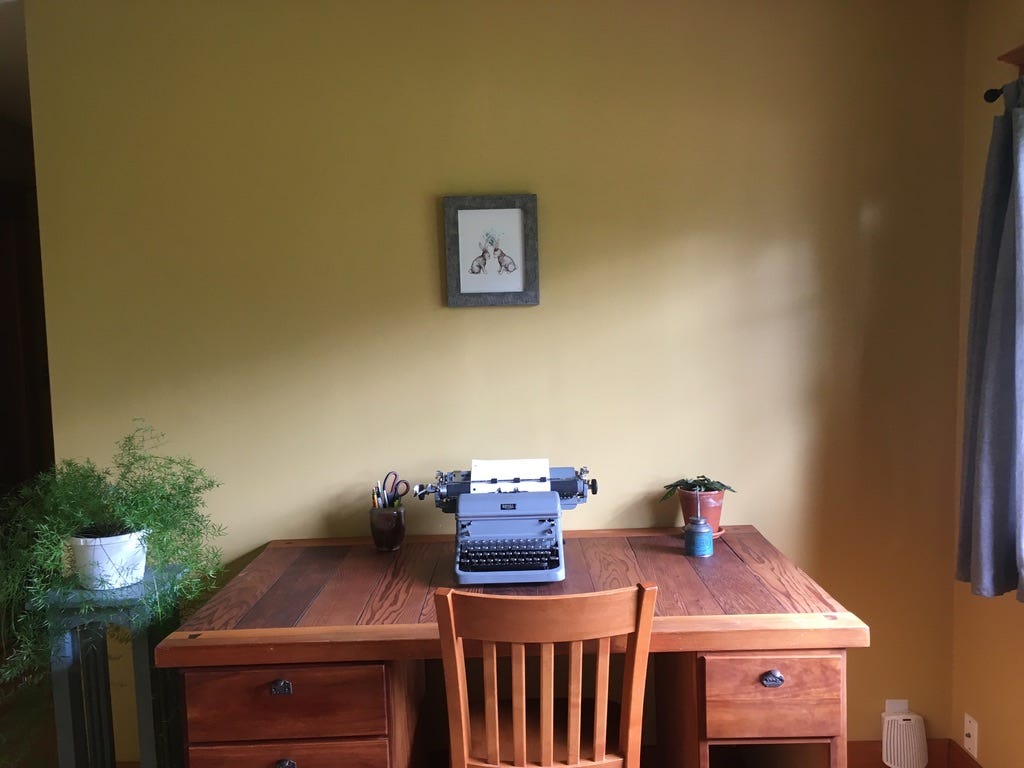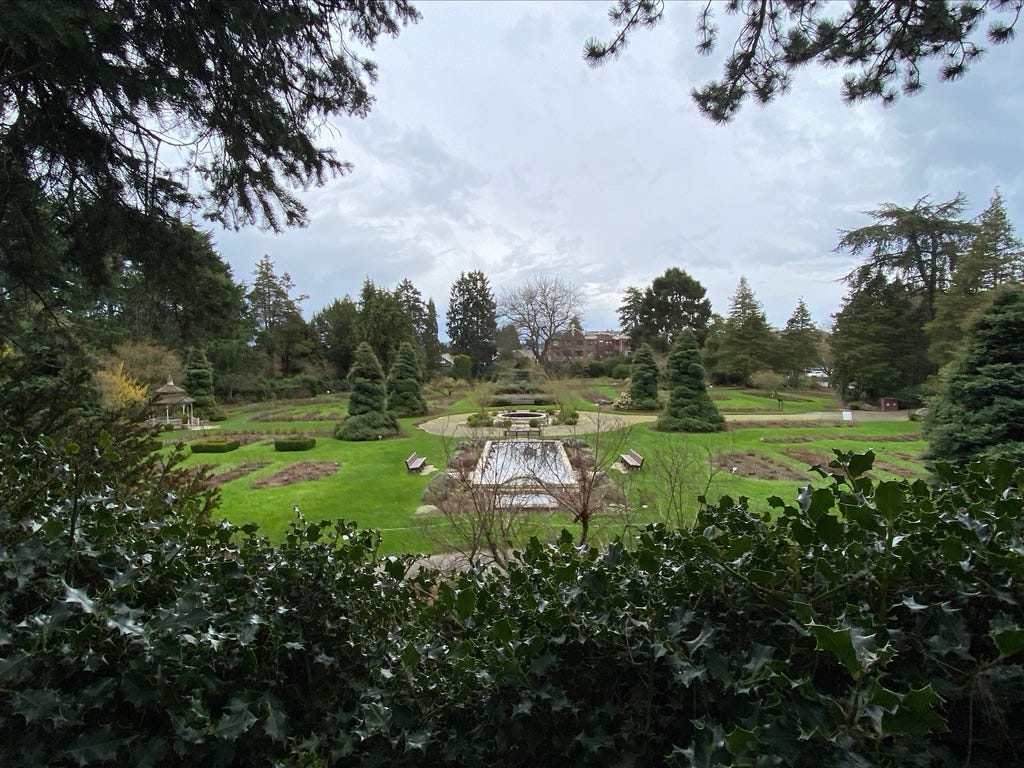If You Could Help Me To Share The Trouble
We don't speak of it, we don't even try
I woke up Sunday morning and realized that I had failed to do any writing on Saturday. This was noteworthy in that it broke a streak of some 26 months wherein I had written every single day.
It was in 2010 that I first decided I wanted to “be a writer,” though that meant something much different to me in that year and basically what I wanted to be was “Ernest Hemingway, but happy.” For a few years after that I was only able to write in fits and starts when inspiration struck—the stories I wrote back then were not “good” but they were certainly creative to an extent that I’ve lost all ability to reach back to.
After moving to Seattle I decided I was going to get more serious about all that, and basically all that I knew, or thought I knew, was that good writers had to write every day. It took me until 2015 to hit a point where I was actually doing that; I made it 360 days that year putting something on paper. In 2016 I didn’t miss a day, including during my hike along the Pacific Crest Trail. 2017 was also a perfect streak, but I was so tired and uninspired by the end that my New Year’s resolution for 2018, which I stuck to, was actually to write less. I didn’t track the days in 2018 but I would guess I sat down to write fewer than 100 times. That didn’t feel particularly good when I looked back at it, either, so in 2019 and 2020 it was right back to the daily grind, 731 days without interruption, amen. Tack on two-plus months here in 2021 and the numbers get pretty big.
I write this not to brag (okay, maybe a little bit) but because I try to make a habit of documenting when things are revealed to be more or less important than I thought they would be. A pretty good run, all told, and one that I knew would come to an end someday. I just figured it would end for a better reason.
At least, that’s how I thought of it at first. I spent all day and night Saturday not writing because I was over in the backyard of two of my closest friends, catching up on the six weeks since we’d last seen each other and meeting their new foster puppy and eating pie and drinking. At times like these that strikes me as a pretty good excuse to ignore one’s entirely self-imposed obligations.
Still, it can be daunting to break from the rituals and routines that have gotten us through these hard, hard months. I suspect we are all going to have some challenges to face during this great nebulous inbetween as vaccinations increase and things start reopening and people start reaching out or retreating inward to cope with our burgeoning dis-disruption. Besides breaking my writing streak, Saturday marked a calendar year since the last time I set foot in my school building. I have no idea when, exactly, I’ll be going back; I also have no idea what it will feel like to stand in front of a classroom again, engaging with students face to face. Knowing students by face. I have had some for months who are complete strangers—a white name on a black Zoom square.
Lately I have tried to avoid using the phrase “returning to normal” to describe what we expect the next few months to look like. Returning to some semblance of familiarity, sure. But the idea that we can (to use a word I abhor) normalize the needless deaths of half a million people and just…move on is heinous to me.
There’s a song I’ve been listening to a lot these past few months—“Golden Embers,” by Mandolin Orange—that I think epitomizes a lot of how I’m feeling. About the grief of the past year, and about what might be required of us to continue enduring it.
Loss has no end
It binds to our connection
And we don’t speak of it, we don’t even try
If you could help me to share the trouble
that you’ve got burning in you, then you can help me
And in our time together
Her memory will ever shine like golden embers in the night
In this country we are not particularly adept at talking about loss, grief, death. It’s not just that we’re not good at it—as the song says, we often don’t even try. Better to pretend, for as long as we can, that death is something that happens to other people. To look at the truth for too long might show us things we could never pretend not to have seen.
I wonder if we can keep that up now in the face of the deaths of half a million of our neighbors, most of which could have been prevented. Like so many other things, turning from this serves only to further entrench the power structures that put us here to begin with. When we pretend that we are each a small bordered nation, that there is no such thing as community, that we owe each other nothing, we foreclose on the possibility of ever making a better world.
It doesn’t have to be selfless, this process. If you could help me to share the trouble that you’ve got burning in you, then you can help me, goes the song. I think that’s all true. Bathe me in the light of understanding, the singers plead. We’ve been bathed, inundated, nearly drowned in all the evidence we would ever need in order to understand during this past year. Whether we choose to act on that or waste it is up to us.
Thanks, as always, for reading. I’ll talk to you next week.
-Chuck
PS - If you liked what you read here, why not subscribe and get this newsletter delivered to your inbox each week? It’s free and always will be.





Nicely done. A reasoned response to the end of a streak in what has been a completely unreasonable year.
Excellent. I saw the headline and recognized my favorite group! Andrew Marlin is a brilliant songwriter.